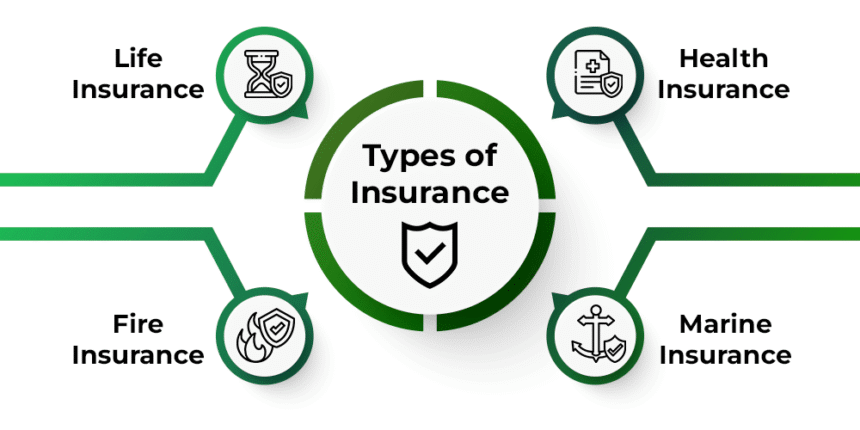Insurance is a crucial component of financial planning, helping safeguard you and your family against potential financial burdens. However, your insurance needs will evolve with each stage of life, from young adulthood through retirement.
This guide provides a breakdown of the types of insurance you may require at various life stages, ensuring you’re prepared for life’s unpredictable events.
1. Young Adults (Ages 18-29): Laying the Foundation for Financial Security
In your twenties, you may feel invincible, but securing certain types of insurance early can save you money in the long run. Here’s a look at the key coverages:
Health Insurance
With rising medical costs, health insurance is essential, even if you’re generally healthy. Many employers offer group health plans, but if you’re self-employed or don’t have access to employer-sponsored insurance, look into individual health plans or government programs.
- Advertisement -
Renter’s Insurance
If you’re renting a home or apartment, renter’s insurance protects your belongings against theft or damage. This affordable policy can also provide liability coverage if someone gets injured while visiting you.
Auto Insurance
Legally required if you own a vehicle, auto insurance covers damages from accidents, theft, and injuries. Policies vary widely, so compare options to find coverage that balances cost with protection.
2. Early Career Professionals (Ages 30-39): Expanding Coverage as Responsibilities Grow
By your thirties, you may have a growing family, a mortgage, and a car loan. Your responsibilities increase, and so should your insurance coverage.
Life Insurance
If you have dependents, life insurance is essential to provide for them in case something happens to you. Term life insurance is generally affordable, providing coverage for a specified period, often until children are grown or the mortgage is paid.
Disability Insurance
Your income is likely your most valuable asset. Disability insurance replaces a portion of your income if an illness or injury prevents you from working. Check if your employer offers this, or consider purchasing a private policy to ensure you’re covered.
Homeowners Insurance
If you own a home, homeowners insurance is essential. This covers damages from disasters, theft, and other risks, protecting your property and belongings.
3. Established Adults (Ages 40-59): Protecting Assets and Planning Ahead
In your forties and fifties, your insurance needs may become more complex as you focus on protecting assets and planning for the future.
Long-Term Care Insurance
As you age, the risk of requiring long-term care increases. This insurance covers services like in-home care, assisted living, and nursing facilities. Premiums are more affordable if you purchase it in your forties or fifties rather than waiting until retirement.
Umbrella Insurance
This policy provides additional liability coverage beyond what’s included in your home and auto insurance. It’s valuable for anyone with substantial assets to protect, as it covers incidents that could otherwise lead to significant financial loss.
Critical Illness Insurance
Critical illness insurance provides a lump-sum payment if you’re diagnosed with a severe illness, such as cancer, heart attack, or stroke. This can help with medical bills, treatments, or lost income.
4. Pre-Retirement (Ages 60-69): Ensuring Security for Later Years
As retirement nears, your focus will likely shift to preserving wealth and ensuring healthcare coverage in your senior years.
Medicare and Supplemental Health Insurance
Once you turn 65, you’re eligible for Medicare, the federal health insurance program for seniors. However, Medicare doesn’t cover all healthcare expenses, so many retirees opt for supplemental insurance or “Medigap” to cover additional costs.
Annuities
An annuity can provide a steady income stream during retirement. While not technically insurance, annuities are offered by insurance companies and can act as a financial safety net, especially if you’re concerned about outliving your savings.
Life Insurance Adjustments
Review your life insurance needs as you approach retirement. You may need less coverage if your children are financially independent, but some retirees keep a small policy to cover final expenses or leave a legacy for loved ones.
5. Retirees (Ages 70+): Final Protection for Peace of Mind
In retirement, insurance needs typically decrease, but certain coverages remain crucial.
Final Expense Insurance
This type of life insurance policy is designed to cover end-of-life expenses, such as funeral costs, outstanding medical bills, or any remaining debts. It’s a smaller policy, typically under $50,000, but offers peace of mind for both you and your loved ones.
Long-Term Care Reassessment
If you purchased long-term care insurance in your forties or fifties, assess whether you need to adjust your coverage or benefits. Depending on your health, you may also qualify for newer policies that combine life insurance with long-term care benefits.
Estate Planning and Trusts
While not insurance in the traditional sense, estate planning helps ensure your assets are distributed according to your wishes. Consult an estate planning attorney to establish a trust if necessary and to make arrangements for healthcare directives.
Choosing the Right Insurance at Each Stage
Selecting the right insurance policies for each phase of life involves balancing your current financial situation, future goals, and personal needs. Here are some final tips to help make informed decisions:
Evaluate Your Needs Annually: Life changes, and so do your insurance needs. Reassess your coverage annually to ensure you’re neither overinsured nor underinsured.
Consult Professionals: Insurance agents, financial planners, and estate planning attorneys can provide guidance tailored to your individual situation.
Plan for the Unexpected: While it’s tempting to save by skipping insurance, the financial consequences of unexpected events can be far greater. Insurance acts as a financial cushion, providing peace of mind that can help you and your loved ones weather any storm.
Shop Around: Different insurers offer varied rates and policies. Compare quotes, read reviews, and understand what’s covered to get the best deal without compromising protection.
Insurance as a Lifelong Financial Partner
Your insurance needs evolve with each stage of life, supporting your health, financial stability, and peace of mind. From protecting your income in early adulthood to ensuring your loved ones’ well-being later on, insurance remains a vital tool for financial security. Being proactive and informed about insurance decisions helps you navigate life’s uncertainties, allowing you to build a solid foundation for yourself and your family.

